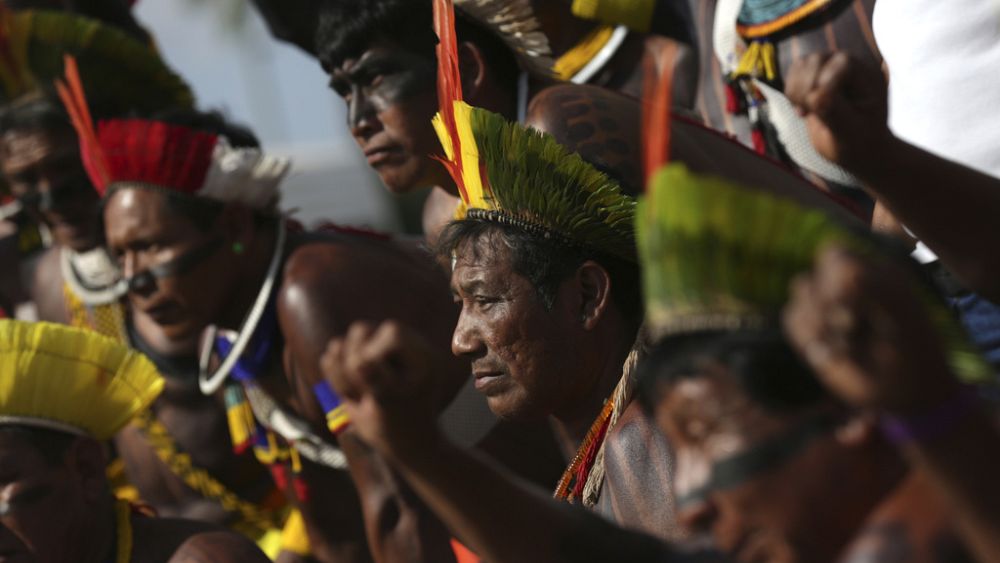
There were celebrations and tears of joy outside the Supreme Court in Brazil on Thursday after judges ruled overwhelmingly against a cut-off date limiting Indigenous land claims.
The restriction was sought by the country’s powerful agri-business lobby, which wanted to block their right to land that they did not live on in 1988.
If the case had been approved, indigenous groups would have been forced to prove that they lived on the land in question in October of that year, when Brazil’s current constitution was ratified.
Nine of the 11 Supreme Court judges rejected the proposal saying it countered constitutional guarantees on Indigenous rights to ancestral lands.
Two voted in favour of the limit saying it would end land conflicts and give security to farmers who had worked the land overs the years.
According to the latest census, there were some 1.6 million Indigenous people in Brazil, and ancestral lands form an essential part of their culture and livelihood.
But many continue to be displaced by land-grabbers and business interests including illegal loggers and miners.
The decision by the Supreme Court may influence a proposed bill due to be voted on by the Senate next week, that seeks to limit new Indigenous reservations.





